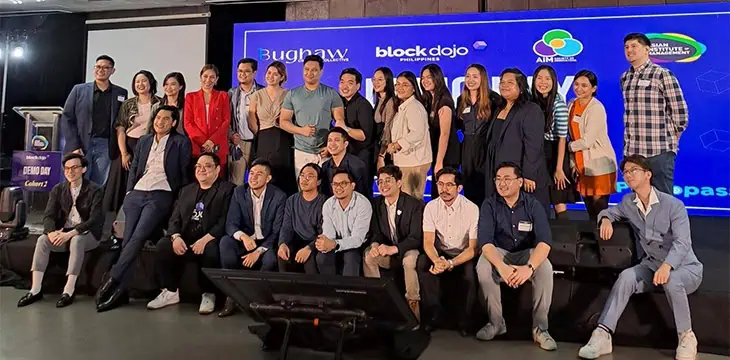|
Getting your Trinity Audio player ready...
|
Six startups under the venture-building program Block Dojo Philippines recently showcased their blockchain offerings at the Asian Institute of Management (AIM) in Makati City, home to 40% of the country’s top 1,000 multinational and local corporations.
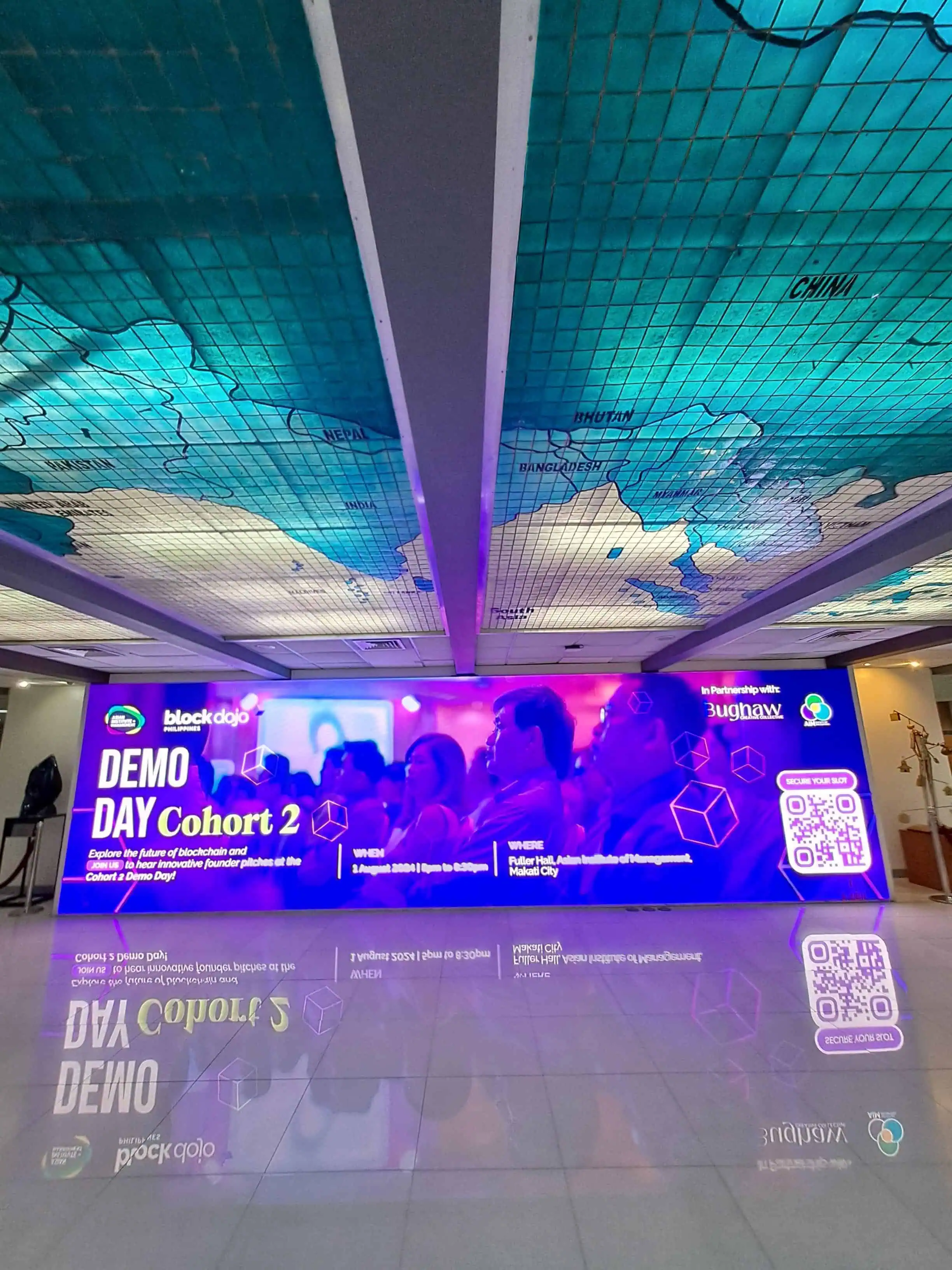
Attended by key industry players in the enterprise and fintech sectors, government officials, business students and alumni, the Demo Day was a culmination of the three-month immersion program of Block Dojo Philippines’ second batch of cohorts. The event served as a platform for startups to showcase their products that were developed with the goal of addressing common societal woes in mind.
Welcoming a room packed with participants eager to know more about the Dojo and the cohorts, Rico Camus, Program Director of the Master in Innovation and Business at AIM, emphasized the need to support the startup ecosystem, saying the industry is at the heart of nation-building and innovation. He also lauded Block Dojo Philippines not only for providing fledgling companies an avenue and guidance in developing solutions for real-world problems but also for recognizing the potential of the local industry to make a change.
Private institutions like the AIM are not the only ones assisting the startup community, with the government setting up the National Development Company (NDC) to cater to this industry. NDC General Manager Undersecretary Antonilo Mauricio graced the event with a keynote presentation delving into the initiatives supporting enterprises nationwide through investments.
While the NDC has served the local enterprise community since 1919, Mauricio said the Philippines’ startup community is only beginning. The government is continuously working to enhance its understanding of the ecosystem’s diverse requirements.
“The country is just starting its long journey in the startup ecosystem and supporting SMEs (small and medium-sized enterprises), and we are learning as a government. So, I think it’s a good public and private partnership for us here at the Asian Institute of Management,” he said.
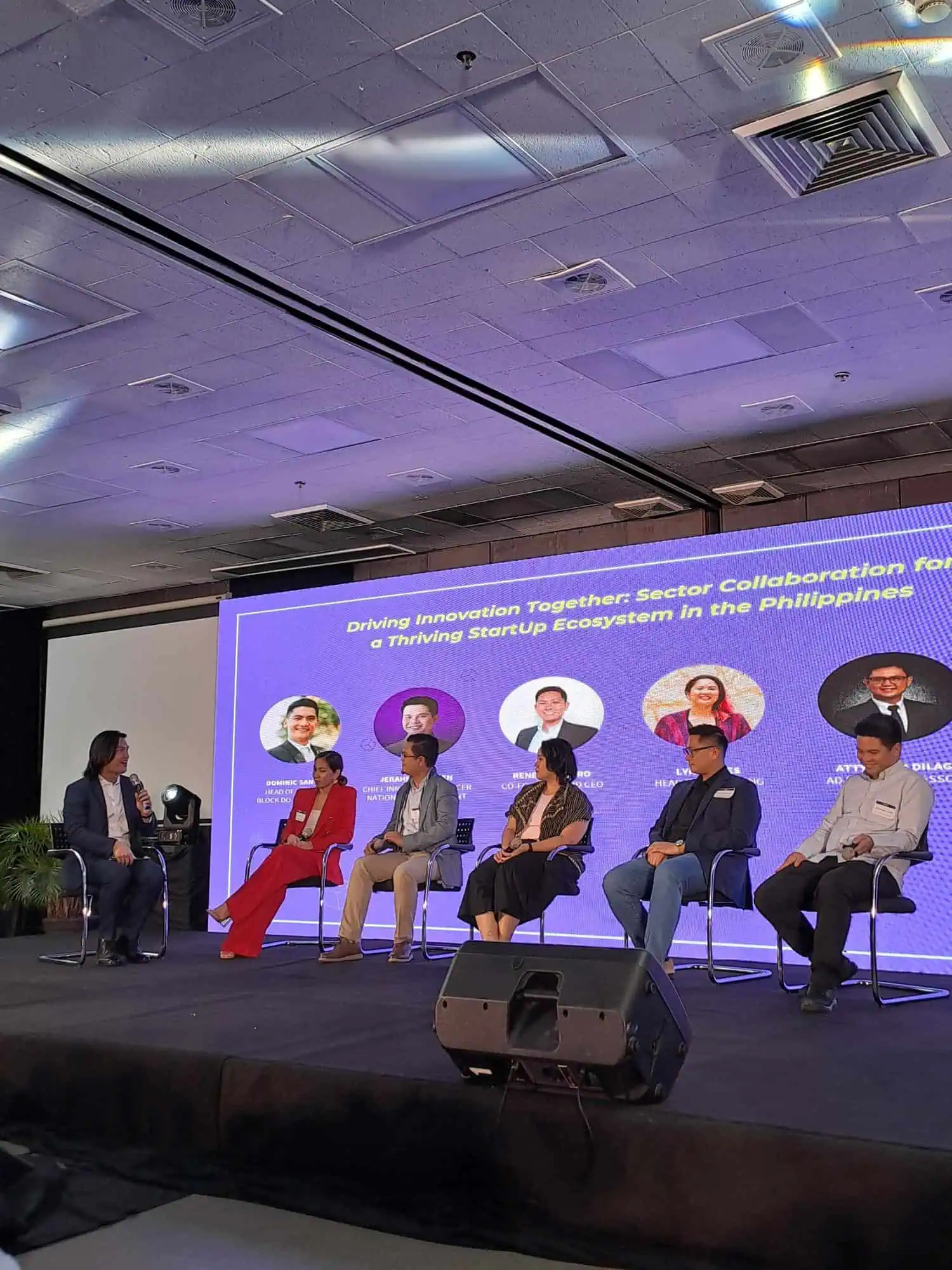
Camus and Mauricio’s presence during the Demo Day offered a glimmer of hope for startups and individuals looking to enter the scene but fearing support won’t be given. The Demo Day also organized a panel discussion involving key industry players, including Stephanie Tower, business development lead at nChain Philippines; Lyra Reyes, head of marketing at Singapore-based e27; Jerahmeel Chen, chief innovation officer of the NDC; Jocel Dilag, adjunct professor at AIM and Chief Innovator at Bughaw Creative Collective; and Rene Cuartero, co-founder and CEO of AHG Lab, who tackled the challenges in the startup and enterprise ecosystems and the critical role of various sectors in navigating these and helping the industry thrive.
The evening’s focal point was the presentation by the cohorts, who demonstrated the knowledge they acquired and the connections they established during their journey with Block Dojo Philippines.
Championing innovation through blockchain
Pettopass
Economic hardships have forced youths to postpone creating a family despite being at the right age, with many opting to care for pets instead of raising kids. This has led to the rise of pet culture in the Philippines. With this, John Dometita developed Petopass, a system for the identification of users’ pets, from their breed to their medical history to their characteristics.
Petopass was curated in memory of Dometita’s Labrador, Milo, who succumbed to the deadly Parvovirus. The blockchain-based application intends to help users closely monitor their pets’ basic needs, avoiding the same circumstance as Dometita’s.
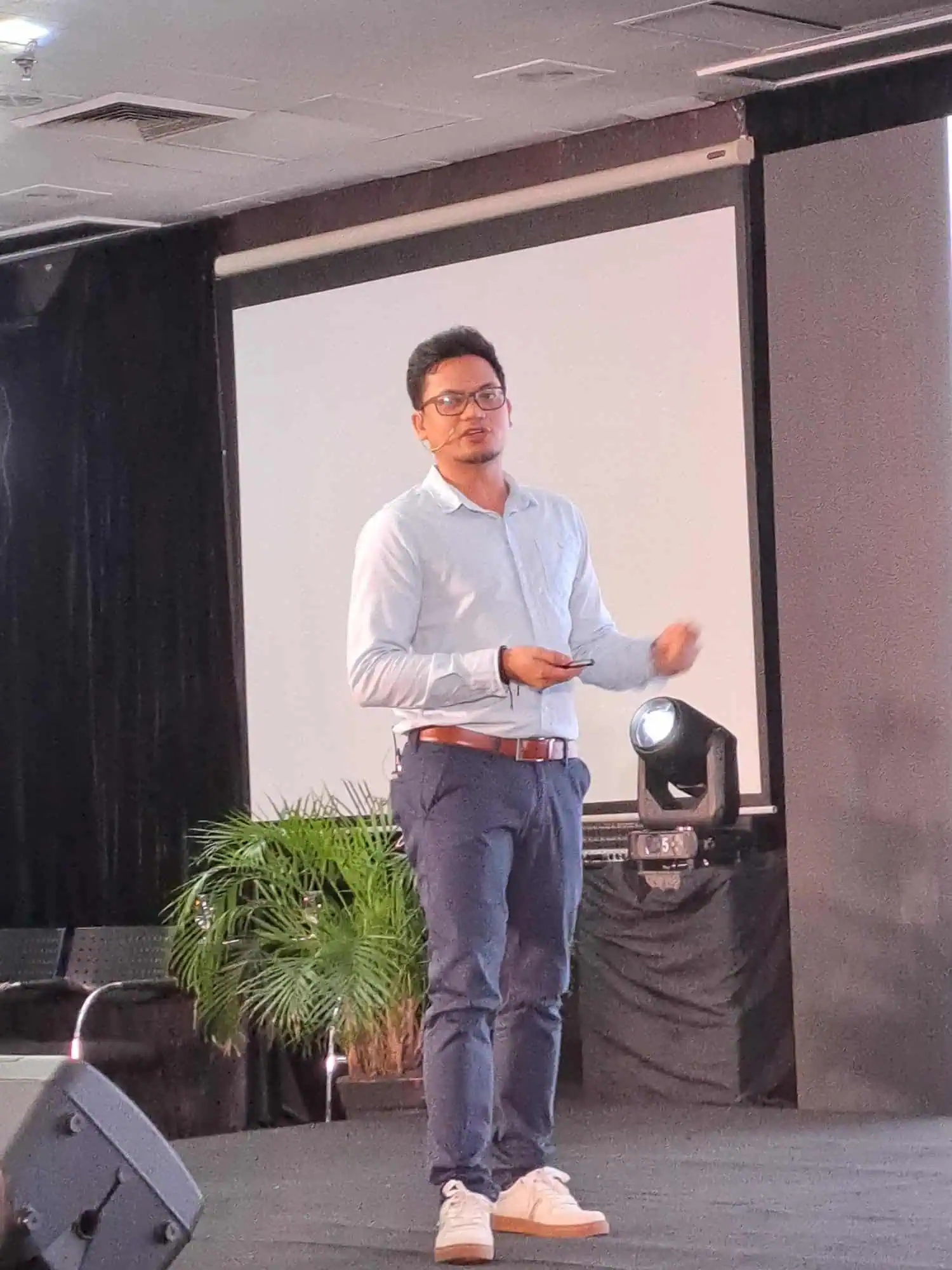
“Regardless of their age, Petopass will align with based on recommendations to target the basic needs of your pet, group into location, health and play,” Dometita said, adding that his startup has partnered with pet-friendly merchants to give users discounts on select pet items.
The application also has a point-collecting system, which can be exchanged for pet items or services.
Since its launch in June, Petopass has over 1,400 users and 52 merchant partners nationwide, two of which are insurance companies that would secure the future of registered pets and their owners as well, said Dometita, who has 16 years of experience in software development.
Willow
Nobody prepared anyone for the challenges of adulting, and even those who claimed to be on the right track also have moments when they need to take a break from their responsibilities. Oftentimes, when the journey gets tough, some develop mental illnesses from stress, and in the Philippines, getting help isn’t relatively easy and can be extremely costly.
Hotlines and online platforms are available for help, but one major issue the Philippines has to cope with is the lack of available psychologists. In the country, the ratio of psychologists to Filipinos is one is to 100,000.
While some continue to thrive despite their deteriorating mental health, others aren’t as fortunate and have to undergo medication or therapy. But there are some who have the ability to handle themselves on their own, but from time to time, they still need support from professionals. They are the ones in the middle of the pyramid, and the target market of Willow.
“We are a coaching platform that helps people in the middle experiencing one or two symptoms but not really fulfilling the criteria for a psychological disorder,” said founder Clarice Cabanlit.
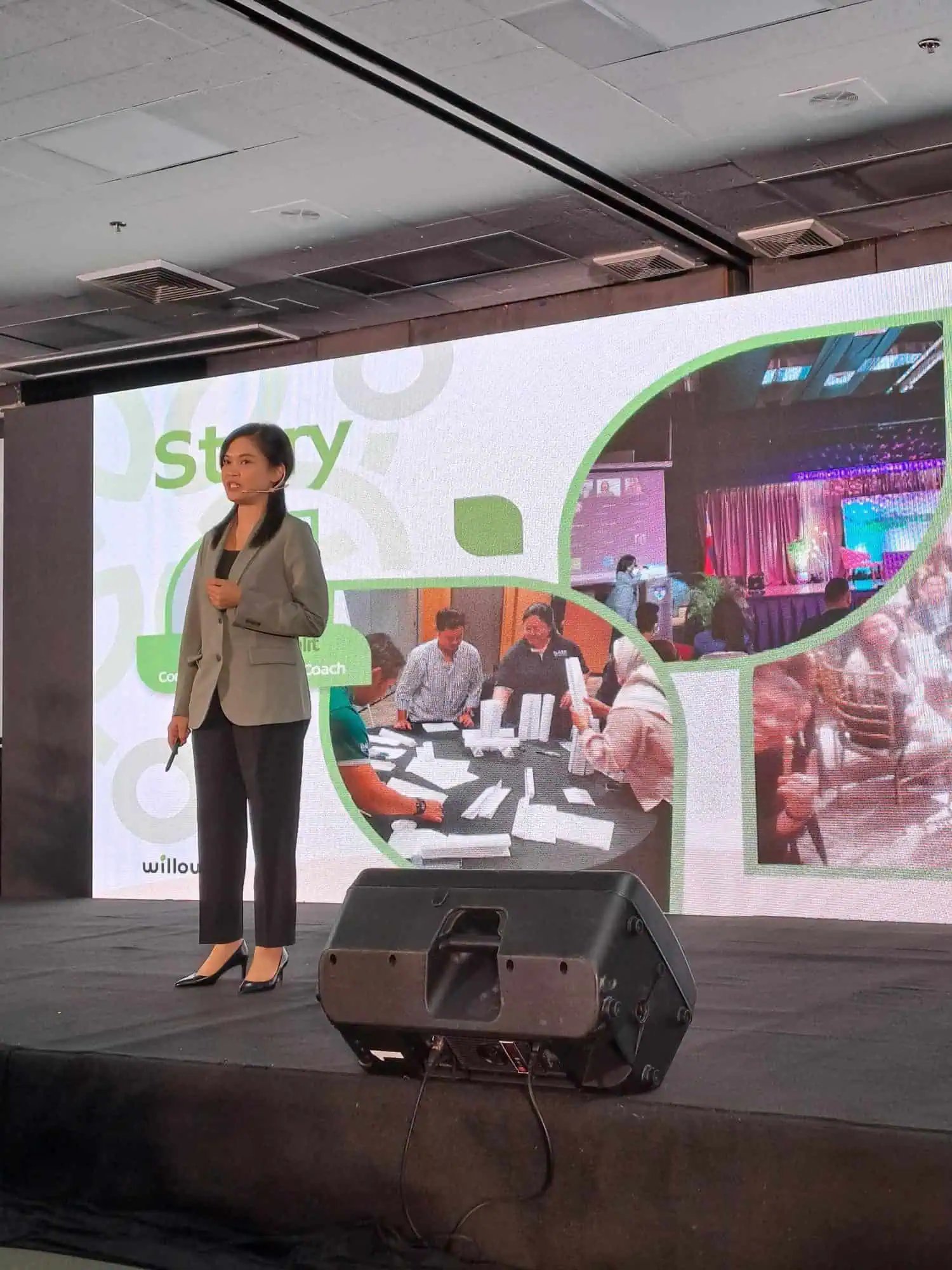
Willow tapped professionals who have core skills to help users but are underutilized in the field of coaching. Although they already have the skills, Willow will provide training for these coaches to allow them to “deliver coaching in a way that really makes an impact in the lives of people.”
Willow focuses its service on high-stress industries, such as the $850-million market of IT and business process outsourcing (BPO), according to Cabanlit. Individuals and corporate clients who wish to use the app can subscribe or pay per session.
The app isn’t just a simple book-your-session app but is being built to have a library of resources and a messaging service, while also allowing clients to create their coaching plans.
Since its inception in July, Willow has generated interest from 200 industry professionals untapped in the field of coaching. Twenty of these will be trained as the first batch of Willow coaches.
“So far, we have ongoing talks with four companies—two are private and two within the government,” said Cabanlit.
Park King
Traffic isn’t uncommon in the Philippines, with public roads teeming with public vehicles and private cars. Between January and September 2023, there were 1.2 million private cars registered in the country, slightly down from the 1.27 million recorded in the previous year. With the increasing number of car owners in the country, the Parking Management market is expected to grow by over 9 billion pesos ($157.1 million) by 2030.
Heavy traffic isn’t the only issue that Filipinos face daily, but the availability of parking spaces is as well. This is where Park King enters.
Integrated with the Internet of Things (IoT), the Park King app allows users to reserve a parking slot in advance, reducing the hassle of finding available parking spaces during an event or a simple night out. Park King has two standalone products: an events app and a parking management system. The events app charges a minimum of 150 pesos to 500 pesos ($2.62 to $8.73) on top of the parking fee, while the parking management system charges a one-time installment fee with revenue share.
Reservations may be the app’s core feature, but founder Jynon Mapa says there is more to look forward to.
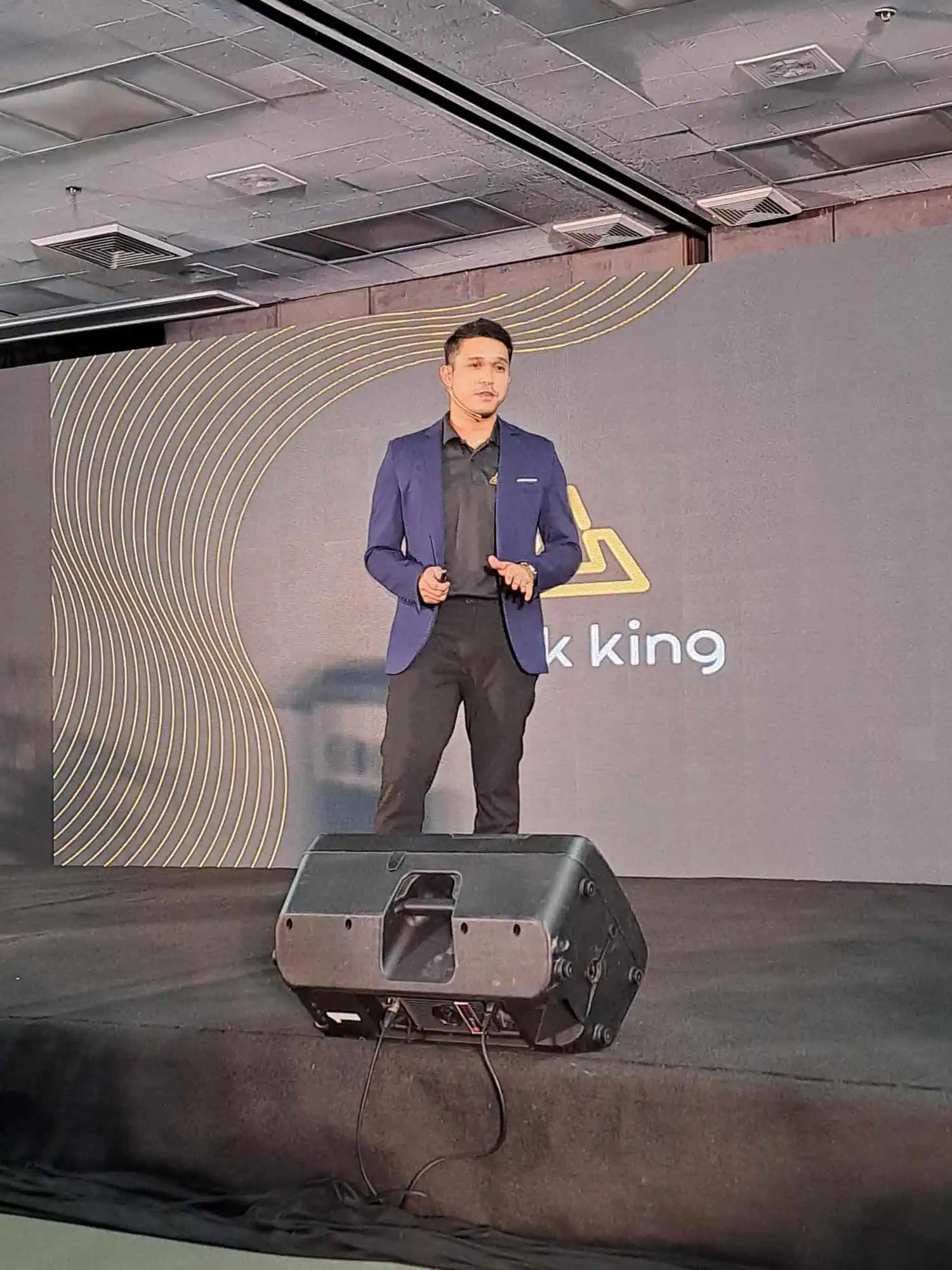
“We actually discovered that if you use our barriers and deploy them in each slot…we can help establishments and parking owners with their revenue management to avoid revenue loss for uncollected parking fee,” said Mapa, pointing out that the app can be of help for parking space owners at residential buildings and in fractional parking and street parking.
Park King was piloted in June at the Raya Garden Condominium, a property of one of the Philippines’ leading engineering-based integrated construction firms, DMCI.
Currently, Park King is in talks with mall operators, parking management events places and concert grounds to test the app, to make it more available to a wider audience, Mapa said.
Certifyed
Processing and managing educational documents shouldn’t be a hassle, both for universities and students. In the Philippines, requesting a simple transcript of records (TOR) could take weeks to process, and with the advancements in technology nowadays, the issue of faking certifications and diplomas has become rampant.
Championing blockchain’s transparency and immutability is Certifyed. Founded by Gino Sampedro, the app offers a credential management system.
“At Certifyed, we partner with different training institutes to issue blockchain-based certificates to students. Student, on the other hand, who received this credential can add them to their portofilo, share this to verifiable credentials with others,” explained Sampedro, adding that third-party users can easily verify the credentials by simply scanning a QR code.
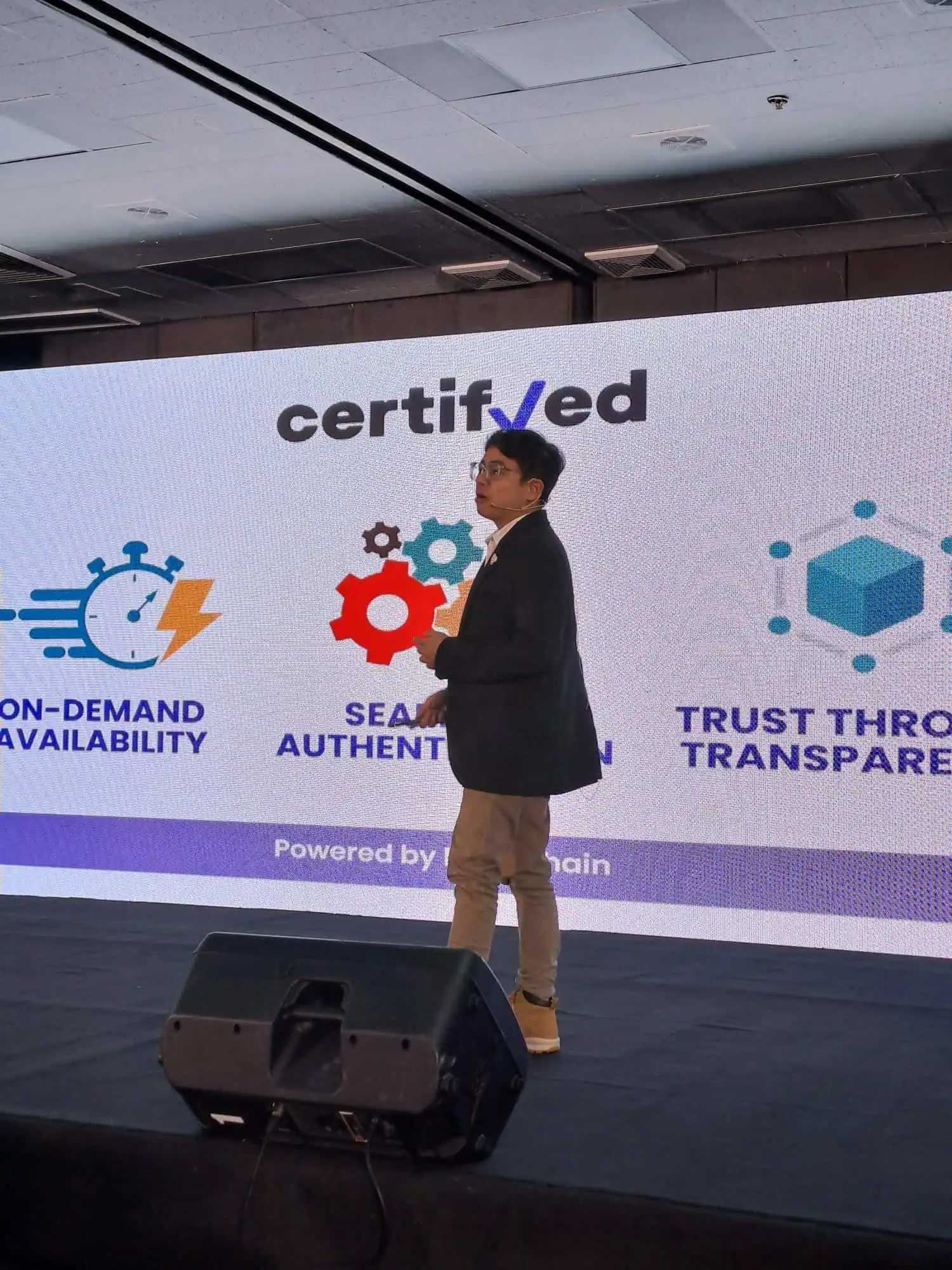
This blockchain solution is a way to streamline operations, from the issuance of certificates and other credentials to their verification.
Certifyed runs a subscription fee model, with training institutes only needing to pay a $5,000 annual fee to use the system.
“Other revenue streams, on the other hand, will come from authentication of non-certified documents, as well as verification for those needing to verify credentials,” noted Sampedro.
At present, Certifyed has gained the support of some of the Philippines’ leading educational institutions, including MAPUA University, STI, De La Salle University and Lyceum of the Philippines, as well as the Department of Budget and Management, which Sampedro said has agreed to pilot the product.
Certifyed currently has 300 users.
Upraised
Transforming properties can be a challenge for property owners. Not only is access to funding hard to find but so is finding the right professional construction partner. But with UPraised, founded by Pierre Legislador, these issues will soon be a thing of the past.
Described as a matchmaking platform for property owners and funders of curated real estate, UPraised aims to become a leader in transforming properties into well-designed living spaces. This blockchain solution is run with smart contracts, which facilitate transactions.
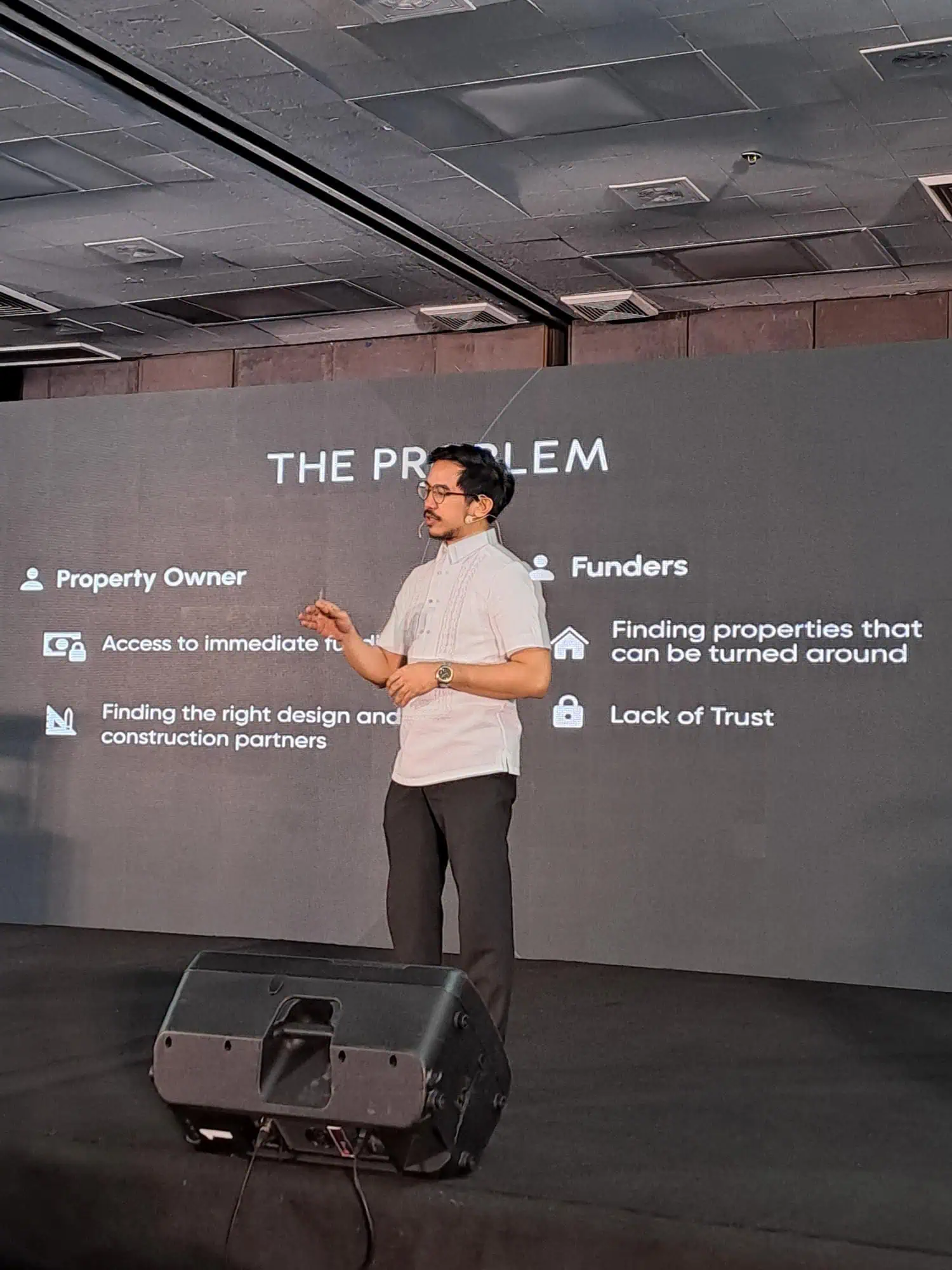
Property owners would only need to list their properties on the UPraised website. These properties will be assessed according to a set of requirements before being officially listed for the funding campaign. On the other hand, funders can visit the website and simply browse properties they can pledge on, explained Legislador.
“UPraised generates revenue based on the 10-20% commission on sold property and a flexible rate of 10-20% rental income shares for rental properties. We also charge a listing fee of 5-10% for successfully funded projects,” he said.
A service like UPraised is extremely rare in the Philippines, unlike countries in the West. Legislador said they plan to partner and promote their service to property owners, developers, private equity firms, private lenders and institutional lenders like banks, “to secure their position as the main facilitator of curated real estate projects for financing and prime locations.”
Currently, UPraised has over 130 property listings and an ongoing partnership with private lending and institutional firms.
Befit2gether
Getting fit and dieting are common New Year’s resolutions among Filipinos, but achieving the goal is easier said than done. For some, going to the gym does the trick, while others resort to exercising at home to avoid additional expenses. However, exercising alone can sometimes be lonely and boring, and Befit2gether looks to change that.
Working like a game, Befit2gether allows users to form a team of up to four people and pit them with a team with the same fitness level as theirs. Both groups will then need to complete various exercise challenges and whichever team finish first will be proclaimed the victor.
Similar to popular mobile games, there will be a leaderboard, and whoever is on top of the ranking at the end of each season will be given physical prizes, said founder Johannes Cortez.
“At Befit2gether, win or lose, you’ll still win because you’ll still get to be fit together,” Cortez quipped.
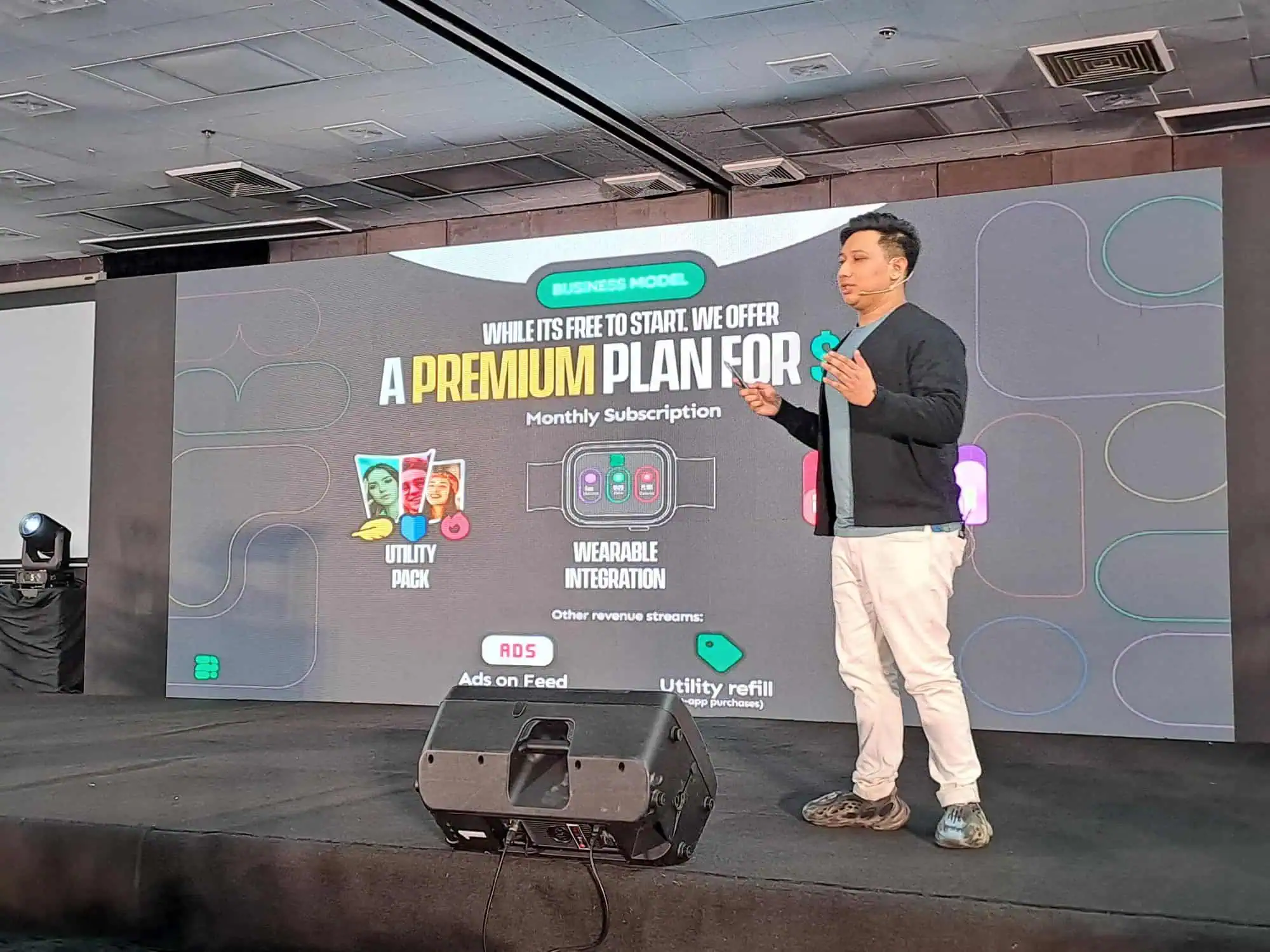
For its pilot, Befit2gether offers exercise challenges focused on cardio, but Cortez said they plan to add more, including weightlifting and dancing.
“We are a fitness game, and we use gamification to make fitness a fun activity so that the world will be healthier and more active,” he said.
Befit2gether is available for a $4 subscription fee. It includes a utility bag, the ability to use a smartwatch for the app, and the ability to turn in-app medals into tangible items.
Despite only being launched in June, Befit2gether already has an MVP (Minimum Viable Product) and plans to roll it out on the App Store and Play Store are underway.
While it has only been over a year since it was officially launched in the country, Block Dojo Philippines has already become a catalyst for the development of the local startup industry and the revitalization of the enterprise ecosystem, but the ride won’t stop here, as what Alexander Ball, Global Program Director and Co-founder of Block Dojo, said in his closing remark at the Demo Day.
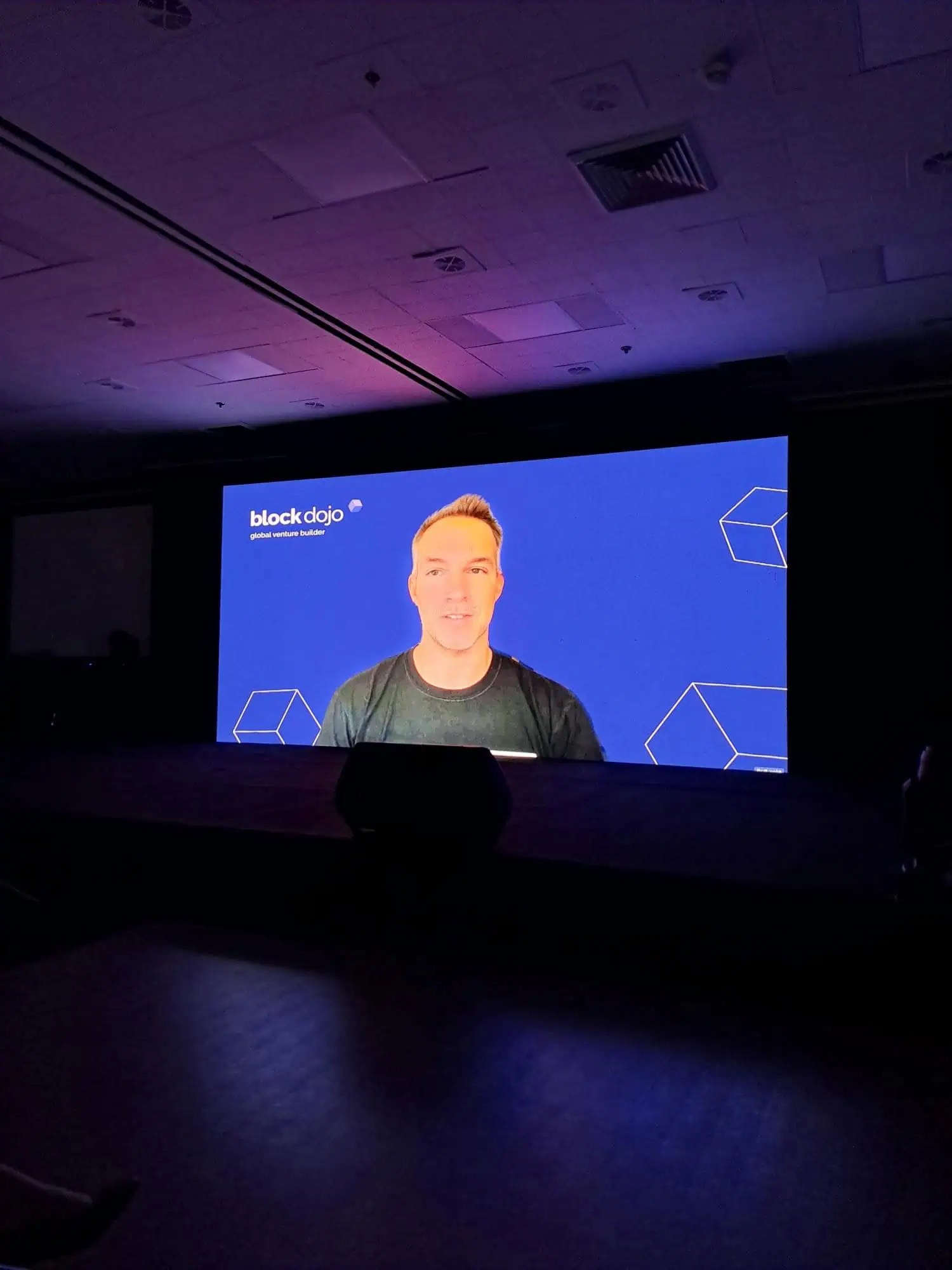
“Since our launch last year, we’ve been on one mission—to empower founders here and across the region. Today, it shows just how we’ve come. We’re excited about the future as we continue to search for talented entrepreneurs and founders in the country,” said Ball.
Watch: Meet the new Block Dojo Philippines founders aiming for global success

 07-05-2025
07-05-2025 
